
PHJC Volunteer in Kenya


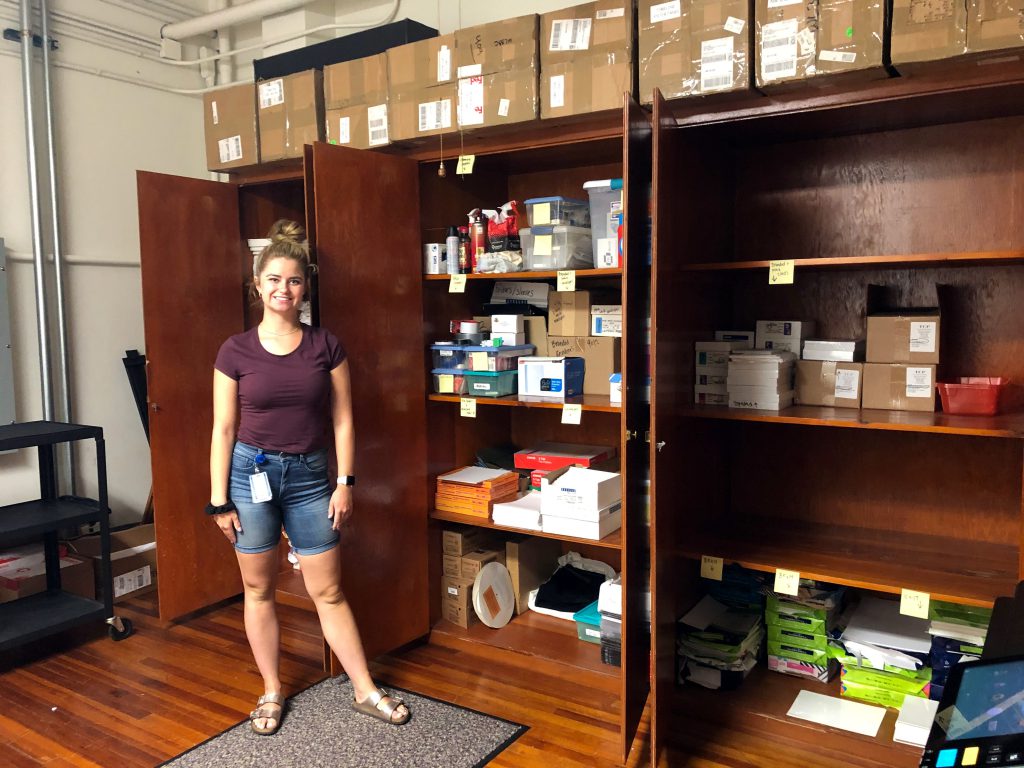
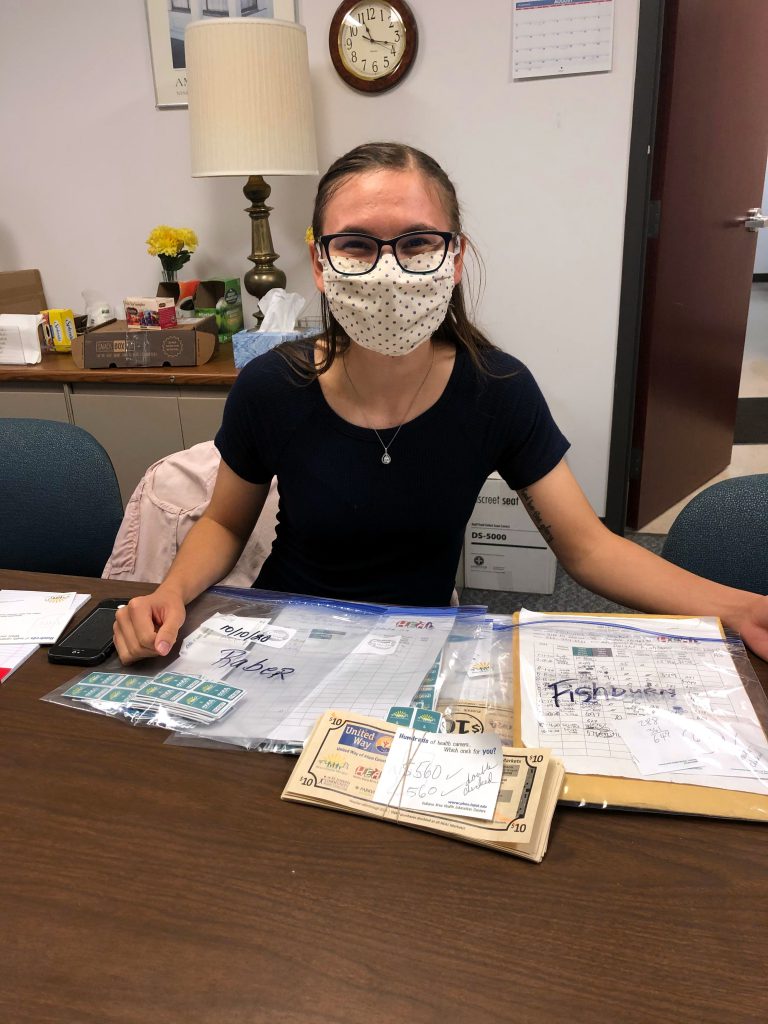
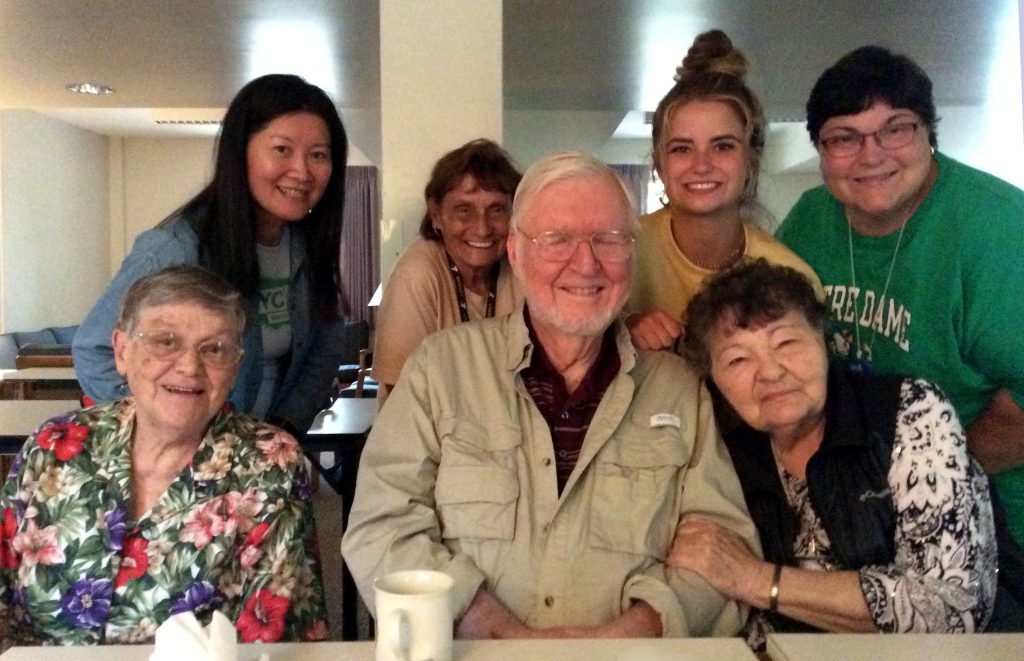
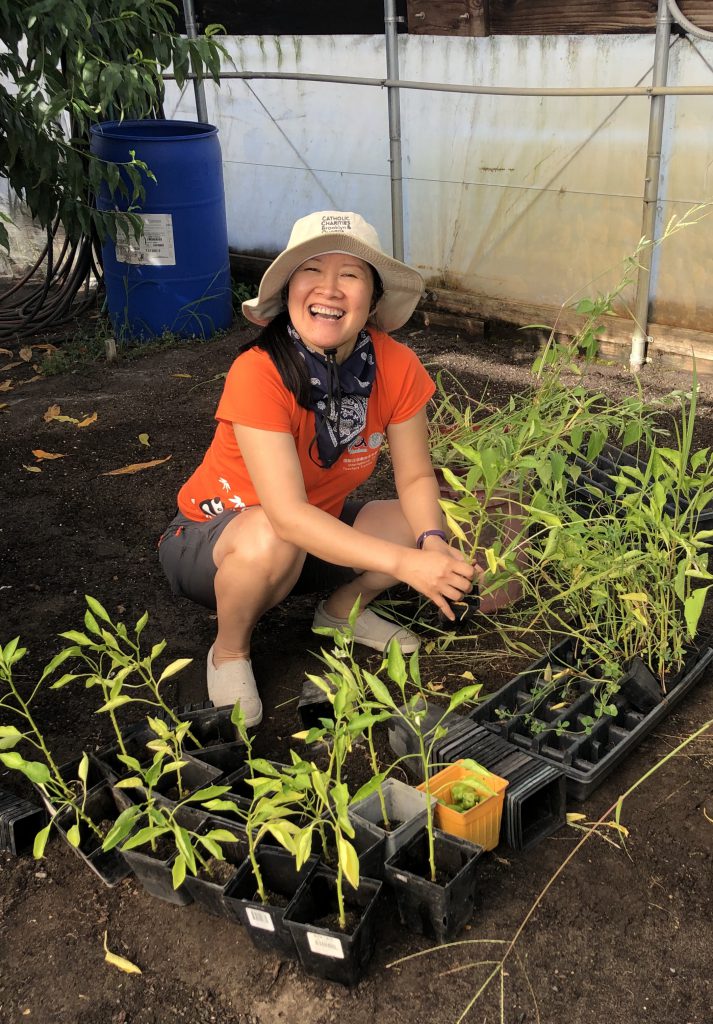
I was thinking about how lovely it would be to walk on the beach today! Our weather here in the Midwest has been a little crazy lately. One day last week it was nearly eighty degrees and the next day we had three inches of snow!
I love to walk on the beach! Recently I took a group of volunteers down to the border in McAllen, TX and Matamoros, Mexico before COVID-19 caused us to shelter in place. We finished our time of service a little earlier than normal and were heading back from Matamoros before flying home to Indiana the next day.
I said to my six volunteer companions, “We are going to take a detour!” We took a right turn and headed east to South Padre Island for a few hours. I had not been there before but knew there was only one way to go – east, toward the gulf! We worked our way into the area and drove around a bit, taking in the endless beauty of the blue sky, water, beach, and sun!
I found a break between two buildings with a walkway leading to the beach and turned into the parking lot. We made our way as fast as we could with the wind blowing in our hair and the smell of the water tickling our noses. Before long, our feet were sinking into the sand as we headed straight for the water. Curious seagulls squawked overhead. People passed by walking their dogs and picking up seashells. We each found our own space where we could “take it all in” and, I suppose, commune with God in our own ways.
Soon the cameras came out and fingers were snapping shots as fast as they could tap the buttons. Before you knew it, I picked up a stick and drew a great big heart in the sand. It seemed almost an automatic thing for me to do! Inside the heart I drew the letters, PHJC. You can imagine why! We gathered around this simple symbol representing who were together. We had created a community of communion with one mind and one heart, and in such a short time!
We each chose to put aside the demands of home and work, traveling over 1,500 miles to serve total strangers. We chose to give of ourselves completely to some of those greatest in need in a place ravaged by poverty beyond what any of us have ever experienced. We were each, in our own way, moved by the Spirit and by Saint Katharina Kasper to make a difference through service, compassion and the gifts of time and energy.
What does this have to do with writing in sand, you might ask? I guess I realized through this experience that time is fleeting, that experiences are sometimes only once in a lifetime, and opportunities come and go like messages written in sand and then blown away with the wind or swept away by the tide. They can be here and then gone before we know it, both in time and in memory.
But what should never leave us is our gratitude for our past experiences, for our loving God who places such opportunities before us and who gives us the will to respond. If we are really attentive, we can link such opportunities together to see how God has always been present in our lives offering this and that choice; opportunities to be enriched, to love, to serve, to grow – and to give praise!
During this pandemic, I am most grateful for the time I have had to pray with and be present to my sisters in our local community. I am grateful for time to create mandalas, write music, work in the yard and appreciate creation. I am grateful to be able to connect through various technologies with family, community, friends and loved ones. I am grateful to check off many items on my “back burner” list.
I am also grateful that, while putting together a photo album, I ran across the photo of the heart in the sand! The photo brought back wonderful memories of experiencing community in communion and recognizing that God is present in everything, especially in my experiences.
For all this and more, I say…
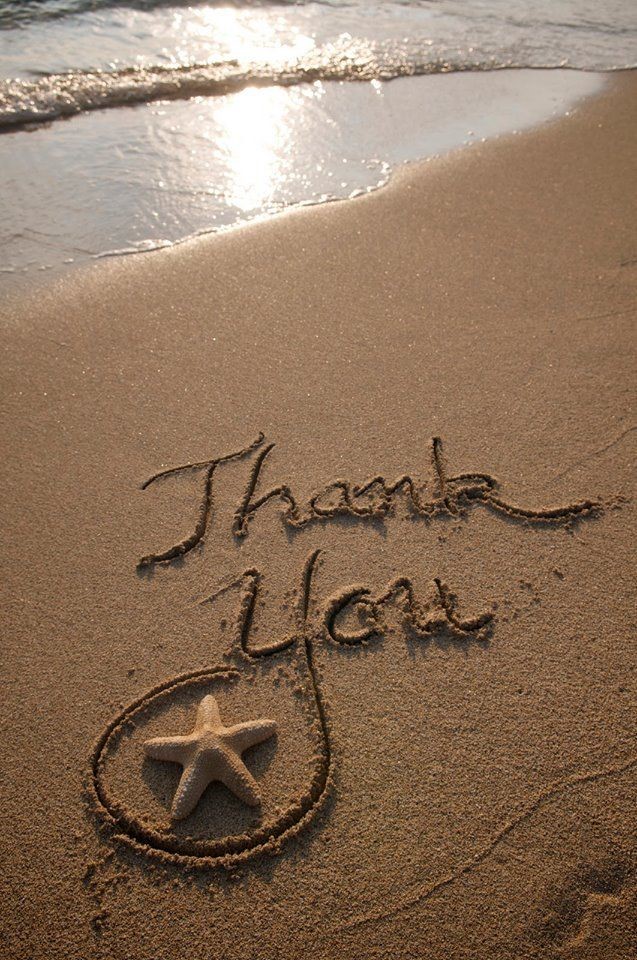
Entering the tent city of Matamoros for the second time on our PHJC Volunteer trip in March engaged my senses. Much had changed since our initial trip in December, 2019. I felt the heat and wind first. The wind never ceased blowing during the week we served. Everything was so much greener than back home. Then the smells hit. First, the smell of campfires everywhere, both for heating and cooking. Next came the latrine smells, so vile that it would be an olfactory assault on the most seasoned camper or summer concert goer. The visuals were somewhat more complicated.
It would be easy to dismiss the tent city as crowded and chaotic. It’s what most see on their initial glance. Look deeper, and you’ll find truth, beauty, and community, which are always there for those who seek them. Families looking for a better life and opportunity for themselves and their children comprised the people we met. The Sisters and co-workers serving on this trip included Sisters Connie Bach, Rosemary Jung, and Barbara Kuper. Poor Handmaid co-workers were me, Marcy Heil, Warren Johnson, and Steve Weinert. What we saw and were able to do once again changed our lives.
One of the first things Sister Connie and I noticed, different from December, was the change in products we packed at the Humanitarian Respite Center of McAllen, our home-base for the week. Instead of making endless peanut-butter and jelly sandwiches to wrap and transport, we packed 350 pounds of masa flour, 300 pounds of beans, 125 pounds of salt, 125 pounds of sugar, 23 gallons of rice, 6 gallons of canola oil, (repackaged in smaller bottles) 60 pairs of shoelaces, 60 Chap sticks™, and 60 rosaries for delivery to the tent city residents. We repeated packing this list daily. Sisters Rosemary and Barb cleaned everything in the kitchen, making it shine like new. Steve also put batteries in the clocks at the respite center, since each one reflected a different time. Time is relative when you’re playing a waiting game.
The trek into the tent city was much longer this time, too. Two big dumpsters filled the area where we had previously set up our offerings, so we walked about a ¾ of a mile longer with ten heavy wagons each day. During these walks, young men and boys from the tent city would come up and pull the loads for volunteers, walking in Saint Katharina’s shoes beside us. They also carried the empty wagons down a staircase for us on the trek out.
There were cell phone charging stations, a place to do laundry (by hand) and wash dishes, and mercifully, the presence of other volunteer groups like Doctors Without Borders and UNICEF to help ease what must be a harsh life. Children created art and attended lessons in the UNICEF tent while their parents and caregivers carried on with daily life. New on this visit was a group of barbers offering haircuts to those awaiting entry into the U.S. with them.
The community we bore witness to was truly an inspiration. Marcy enjoyed games of “hot hands” and thumb wrestling with kids waiting in line, who despite the language barrier, understood the games’ objectives and laughed even in defeat. (She’s good!) On our last day, several of us broke out in the song “Show Me the Way to Go Home,” also while serving the tent city residents. A gentleman joined in, singing the verses and chorus in English. Laughter ensued before he got somber and told us how much he loved America and Americans. Steve warmed all of our hearts when he bought watercolor paper and paints to share with Mia, age 4, a guest at the respite center from Congo. For a few brief hours, Mia got to learn from a world-class artist, splash paint at Steve and laugh, and return to her childhood.
On this trip too were the constant warnings on how to prevent the spread of the coronavirus, which presented a challenge to us and to those who we served. How do you practice social distancing in a tent city? In a respite center? Among your fellow volunteers while you’re working to care for thousands already challenged? It was a quandary we did our best to overcome.
Sister Connie planned a return trip to the border in June, but it’s now postponed. Participants from the March trip will present a lunch and learn about our experience, also at a future date.
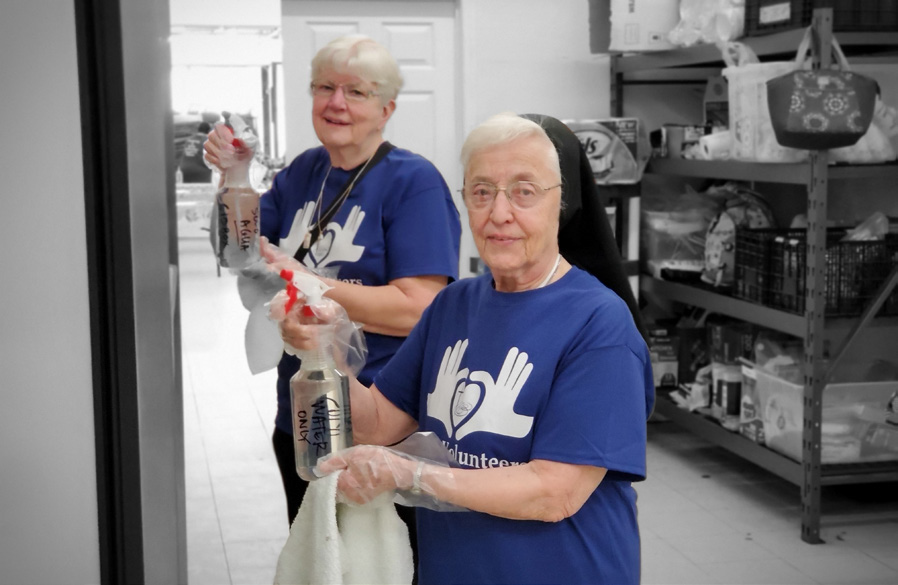
Our program has extended its mission to serving abroad. This past year we have served with our Sisters who live in Mexico and we have served at the borders with our immigrant sisters and brothers in and with the Humanitarian Respite Center in McAllen, TX. We are planning another trip for the spring and already have seven interested parties signed up. We are also hoping to serve the very poor in Holly Springs, Mississippi for a week.
I knew when I returned from El Paso after volunteering at the border that people would ask me what it was like. I knew, after the first week, that I would talk about the eyes of the migrants we were working with. The migrants’ (referred to as guests from here on out, as this is how we referred to them at Annunciation House) stories we heard were each unique in their tales of fear, of suffering at the hands of gangs, government, and everything in between. However, the emphasis and empathy allowed in sharing a language was dwindled and replaced with reliance on body language, and as they are the windows to the souls, our eyes.
The eyes of the guests were weary during intake, hopeful after their phone calls to their sponsors, and relaxed when they were in the kid’s room watching their children play while talking with other parents. Through the whole experience of being able to welcome these asylum seekers to the U.S. there are no adequate words to the spirit that runs through the shelter, other than that it is of God. Somehow, there were always enough supplies, food was always provided, and tensions were dispelled. Ironically, what was missing was an overflow of guests- not that there is a shortage of migrants, but that they’re not being released from the detention centers. If you are asking yourself how you can help, I encourage you to volunteer, to see the shelter, to see the expression of relief through body language for yourself.
If you cannot spare the time or money to visit, which is understandable, I encourage you to call your congressmen and women, to support the Poor Handmaids of Jesus Christ, and Annunciation House, so that more of these people may receive the dignity of moving from ‘migrant’ to ‘guest’ on their journey to their new homes.
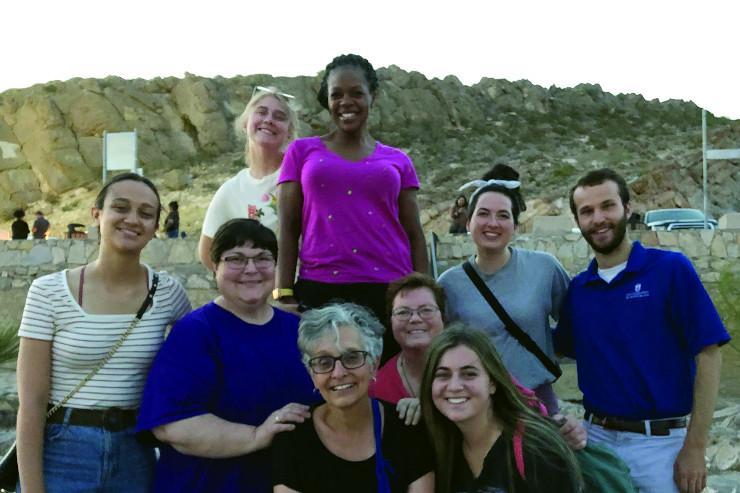
I just returned from 15 days on the border with Sr. Connie Bach and five other volunteers. Our experience was to live and work at a refugee shelter, Casa De Refugiado, in El Paso. What an exhausting and thought provoking experience this proved to be. Together with the rest of my team, we spent 14 days working much more than our eight hour shifts. As the guests arrived at our shelter (a former warehouse) from their ICE bus, they were greeted with food and water. Next came an intake process, a visit to a hygiene room and clothing room to get what they needed. A playroom was set up while we were there for the many children at the facility. And a makeshift clinic was also available. We prepared food, mopped, passed out supplies, sorted donations, took guests to their airport and bus station, made phone calls, watched children, did laundry, packed food, vacuumed, cleaned showers and got a small taste of what it is like to be someone seeking a better life in another country. Along with the latter comes the realization of how lucky we are to live in a safe country. While there we had many discussions about our responsibility regarding the border crisis. . . as Americans, as humanitarians, as Christians. One longterm volunteer shared her response when overwhelmed with so many issues. She asks “What’s mine to do today?” What a valuable takeaway . . . whether working at the border or in our regular, everyday life.
This is my second volunteer experience with Sr. Connie and I’d like to thank her and the Poor Handmaids of Jesus Christ for providing me this opportunity. I’m still processing it, have shared what I learned with others, and will continue to ask, “What’s mine to do today?”